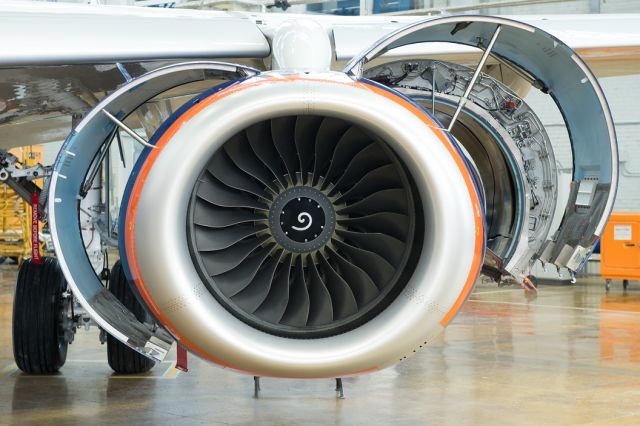Moscow. March 30. INTERFAX - The Russian-French company PowerJet, which produces SaM146 engines for the Superjet 100 aircraft, has stopped their maintenance and repair due to sanctions, a source close to the aviation industry told Interfax.
PowerJet registered in France (50% each from Safran Aircraft Engines and UEC-Saturn of Rostec State Corporation) notified partners in the Russian Federation of the suspension of contractual obligations back in February, after restrictive measures from the European Union and the United States came into force, the agency interlocutor said. The supply of spare parts for the SaM146, technical support and repair of engines, including the return of previously repaired ones, and their leasing, have completely stopped.
In order to prevent the SSJ100 from stopping operation in the Russian Federation, the Ministry of Industry and Trade proposed using a spare parts warehouse and a pool of SaM146 replacement engines that PowerJet formed on the territory of the Russian Federation even before the sanctions, the source said. To do this, the agency proposes to legalize the transfer of property of foreign companies that have refused to do business in the Russian Federation to the temporary management of Russian profile enterprises.
Interfax sent requests to the Ministry of Industry and Trade, the UEC and Safran.
The Wall Street Journal newspaper wrote earlier in March that Safran had ceased operations in Russia due to Western sanctions. It was clarified that we are talking about two French joint ventures with UEC-Saturn - PowerJet and Volgaero, which produces parts for engines, which are also sold abroad.
MADE STOCKS
Imported spare parts for SSJ100 maintenance, despite the sanctions restrictions, will be enough "for a considerable time," Denis Manturov, the head of the Ministry of Industry and Trade, said earlier in March. "We have made reserves in advance, and these are the so-called hubs, in order to service equipment both at home and abroad," he said in an interview with the Rossiya 1 TV channel.
Manturov also promised that in 2022 customers will receive at least 19 SSJ100s, including new factory and previously unrealized "white tails". For these aircraft, "foreign equipment is fully available," the minister said. Certification of the import-substituted version of the Superjet, according to him, is expected in 2023. This model is planned to be equipped with PD-8 engines, which will be produced by UEC.
LOCALIZATION OF SAM146
In the SaM146 project, the French side is responsible for the "hot" part of the engine (a gas generator consisting of a high-pressure compressor, a combustion chamber and a high-pressure turbine), the Russian side is responsible for the "cold" part (a fan and a low-pressure turbine), as well as for the overall assembly and installation on the airframe.
At the same time, the parties had previously negotiated the partial localization of the production of the "hot" part in Russia. At the Le Bourget Air Show in 2017, PowerJet President Marc Sorel stated that foundry production of individual parts could be organized in the Russian Federation. "We have already started looking for partners in Russia who would supply us with additional engine elements," he claimed.
In addition, an increase in localization of the repair of the "hot" part of SaM146 in the Russian Federation was discussed. In 2019, UEC-Saturn and Safran signed a memorandum on the phased transfer of repair competencies to a Russian enterprise. By the end of 2020, the localization level was planned to be increased from 20% to 55%, said Anatoly Serdyukov, head of the Rostec aviation cluster.
SSJ100 OPERATORS
On February 26, the European Union announced sanctions against Russia in connection with the military operation in Ukraine, a number of them hit the aviation industry. In particular, a ban has been imposed on the supply of civil aircraft and spare parts to the Russian Federation, the provision of services for their maintenance and insurance. The aircraft already operated in the country, in accordance with the sanctions, must be returned to foreign lessors. In addition, the supply of systems and components necessary for the production of aircraft is prohibited.


